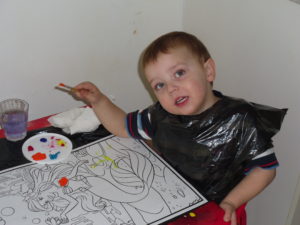 For over thirty years self-esteem has been a top priority for educators and therapists. Despite efforts to improve self-esteem, it remains elusive.
For over thirty years self-esteem has been a top priority for educators and therapists. Despite efforts to improve self-esteem, it remains elusive.
Researchers now say we’re pursuing the wrong thing. We need to pursue self-acceptance, not self-esteem, if we want to feel better about ourselves.
What is Self-Esteem Anyway?
When we think of self-esteem, we usually think of feeling good about ourselves. This often means knowing we are successful and have accomplishments. If we don’t think we’re successful or good at anything, our self-esteem suffers.
Self-esteem is about what we do and how we compare to others. In order to have good self-esteem, we must see ourselves as better than average. This is why parents try to convince their children they are good at something, even if they’re not. They’re trying to build their child’s self-esteem.

If we are the best painter in the class, we have positive self-esteem. If we are average, or below average, we feel bad about ourselves. If we’re not the best painter but convince ourselves we are, we merely have a distorted view of ourselves. We secretly fear exposure, and our self-esteem suffers.
Since self-esteem is about being better than others, it often means building ourselves up by tearing others down.
Self Acceptance vs Self-Esteem
We pursue self-esteem because we want to feel good about ourselves and be happy. Albert Ellis, founder of Rational Emotive Therapy, argues that self-acceptance, not self-esteem, will help us reach these goals.
We all know people who see themselves as better than they actually are. We also know people who see themselves as worse than they actually are. The key to feeling good about ourselves is to see ourselves accurately, and to accept both our strengths and weaknesses.
The 3-Easy Steps to Self-Acceptance
1. See yourself accurately. Don’t exaggerate your good or negative qualities, skills, and abilities. Stop seeing yourself as better or worse than you actually are.
2. Accept that you have strengths and weaknesses. We are all flawed. We all make mistakes. We all have things we are good at and things we are not so good at. Accept that you are not the sum of what you do.
3. Let go of judging yourself. Stop expecting perfection from yourself. It’s human to be imperfect and ordinary. It’s okay to be a bad singer and to sing anyway. There will always be someone better and worse than you at most things. Celebrate your humanness, not your perfection.
When we stop comparing ourselves to others, we become not only more accepting of ourselves, but more accepting of others as well. When we don’t have to tear others down to build ourselves up, we increase our connection to others.
DBT Skills: Think Dialectically and Validation
Thinking and acting dialectically is the skill of accepting that there are two sides to everything. Just as we must learn to accept ourselves as we are, so must we push for change. This statement is dialectical because both positions, I am perfect the way I am, and there are things about me I must change, are true. When we approach ourselves and others dialectically, looking for the truth in our own and other’s perspective, we can let go of judgment and gain acceptance. If you can’t see both sides of an argument or situation, ask yourself, “What is missing; what am I not seeing?”
Validation is the skill of expressing empathy for yourself and others. When we validate, we communication understanding and compassion. It doesn’t mean we agree with everything that is said and done, it means we understand how and why things happen as they do.
“I can do things you cannot, you can do things I cannot; together we can do great things.”
For more information on this topic, read the related posts and links below. For specific DBT skills go to DBT Skills in the menu bar.
If you have an experience you’d like to share, add a comment at the bottom of the page. I’d love to hear from you.
Watch this short video on self-Compassion
